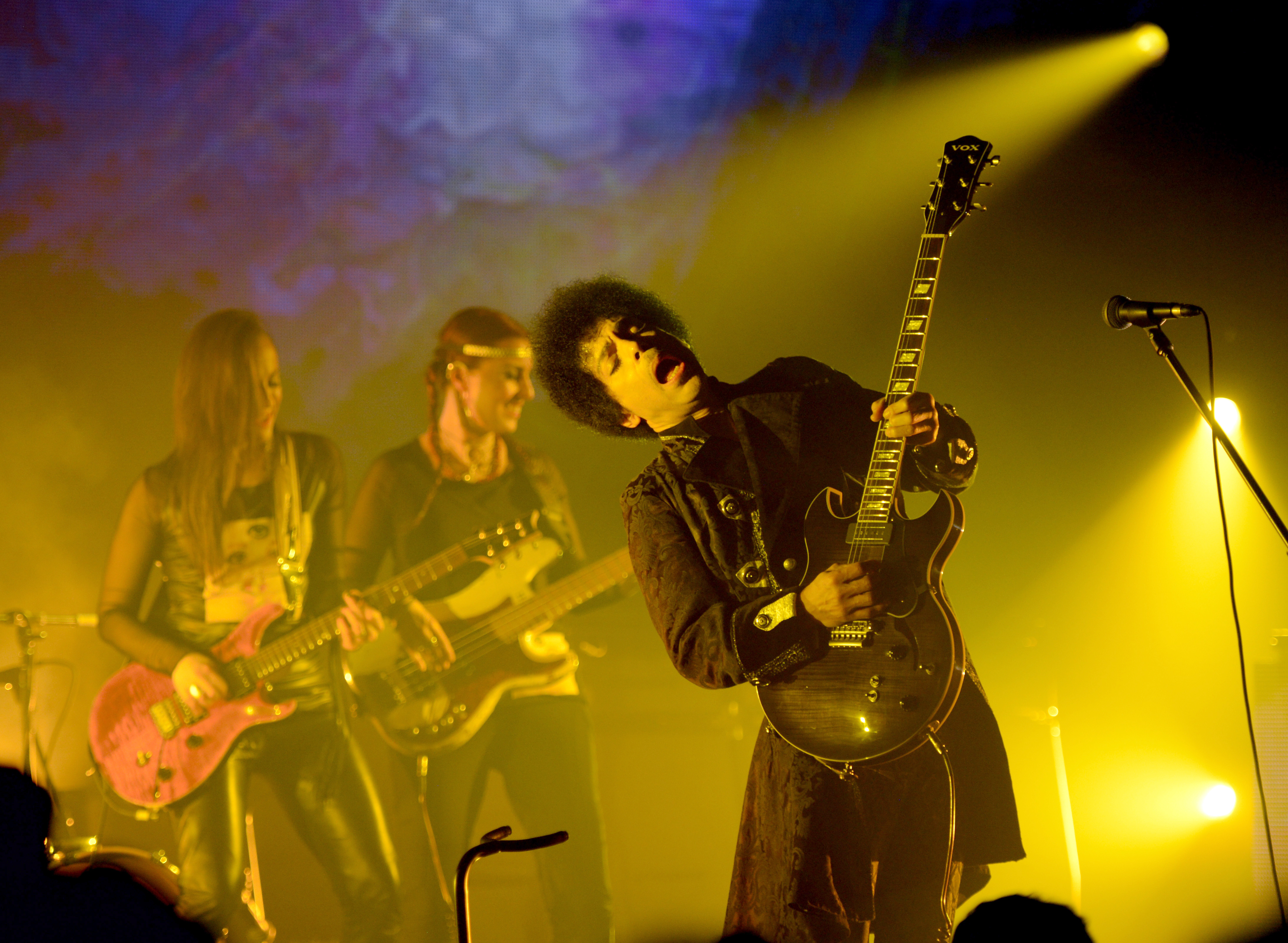John Roderick is the singer and songwriter responsible for Seattle’s the Long Winters. His column appears on Reverb every Tuesday.I was singing along to oldies radio recently when a classic AC/DC song came on. No surprise there–AC/DC has been firmly ensconced in classic-rock territory for 20 years. But as I air-drummed on the steering wheel along with “It’s a Long Way to the Top,” I had the sudden recollection of a time in my youth when AC/DC represented a terrifying world of stoned and leering Satanists, drinking blood and defying their teachers and parents.I used to stare at their albums on the stands wondering how such denim-clad, greasy sleazoids were allowed to be so openly wanton. They were not only (probably) having sex and riding motorcycles, they were mocking society and flirting with the devil. AC/DC were tough–scary and forbidden in a era already famous for being crime-ridden and drugged-out. Now, 30 years later, sandwiched between the Bee Gees and Seals and Crofts, they’re just another smooth hit from the ’70s and ’80s on KJR.Listening to the radio, or to a DJ in a club, or to someone else’s iPod set on shuffle, it’s normal now to hear music jumbled together irrespective of genre or era: Zeppelin followed by Wilco, followed by Esquivel, followed by Rilo Kiley, followed by Ministry, followed by the Black Keys. Although the 50,000-song library and shuffle function are still new, they’re no longer novelties–this is how we listen to music now, a genreless jumble.Having access to everything all the time is fun, but slapping songs together out of context doesn’t just defang AC/DC, it practically rewrites history. Not long ago, music fandom was a compartmentalized and highly charged social world. Categories of music weren’t just labels on record-store bins, they were the organizing principles of youth, of whole communities of people, and of eras that produced great swaths of culture. AC/DC and Bee Gees fans hated each other. It is safe to say that in 1978 there was almost no opportunity to hear them back-to-back, unless you worked at a car wash.When I was a teenager, we didn’t have that much choice of what to listen to, period. LPs and cassette tapes were expensive and scarce. If you wanted to hear an album, you had to either buy it yourself or sit on the floor in a friend’s living room while they taped it for you. Unless you were an obsessive record collector with money to spend, you were limited in the number of albums you could hear, which forced you to be choosy. Add to that the fact that radio stations played very specific genres of music, and it was fairly common for even rabid fans to have limited access to music. That was the point!What you lacked in wide variety, you made up for in depth. If you bought a record by Saxon, you listened to it all the way through many, many times, even if it kind of sucked. You were as tuned into the weird song halfway through the B side as you were the hit single. That intense listening inspired a kind of loyalty, an identification that hardly exists today. That’s not to suggest that there aren’t rabid music fans today–only that back then, if you bought a Saxon record, you tried to be a Saxon fan. You couldn’t afford not to. Nowadays, in contrast, even a person professing to listen only to metal, who doesn’t like any other style of music, still has access to 30,000 possible metal bands spanning more than 40 years of metal history. He or she is unlikely to find even one other person who exactly shares his or her taste. Each listener becomes a tribe of one, the great diversity making it impossible to line up your taste with anyone else’s. There are fewer Saxon fans now, to be sure.Some people might make the case that this lack of tribalism in music is a positive development. Obviously something’s been gained, especially by the generation of kids who have access to great music in an uninterrupted stream. All those teenagers whose parents played them Bach in the womb, who were raised on a steady diet of the Beatles and Beck, are surely the most musically literate generation in history. But as music becomes more of a commodity, the value of any one band or song declines.When genres blur, the culture of the past becomes an indistinct stew. Bands quit being symbolic, or invested with much more importance than as purveyors of hits on a soundtrack. If a young songwriter perceives little difference between early REM and early Elvis, the music he or she writes, and the culture it eventually spawns, risks never rising above pastiche.Among older listeners, the problem is even more acute. Access to an endless stream of decontextualized music speeds our free fall into nostalgia. We forget that DEVO was protest music, the Talking Heads made social commentary, the Pet Shop Boys were gay liberationists. These weren’t just songs that played at prom, they were reactions to the Cold War, to Reagan, and to America’s rust-belt decline. Even in recent history, the last mainstream genre, grunge, had a tribal ethos that was antiracist, antisexist, inclusive. More than a few errant, date-raping Nirvana fans changed their ways because of Kurt Cobain’s constant haranguing.That connection is all but gone now. The endless playlist has reduced every song to top-40 status, to an equal footing in a shuffle roulette. Songs that once stood for something are interspersed randomly with ones that didn’t, all just a skip button away from oblivion. I’m going to make an effort from now on to try to remember a little bit of the world each song came from. I owe them that.
More Stories From This Author
Capitol Hill Block Party Artist Panel Series 2019
The Capitol Hill Block Party Artist Panel Series 2019 is free (no festival wristband required), all-ages, and takes place from…
By
Seattle Weekly • July 9, 2019 11:10 am
Golden Idols will release new EP
Seattle quartet returns with ‘Uneasy’
By
Seattle Weekly • June 24, 2019 5:30 pm
Travis Thompson, Wolf Parade headline Fisherman’s Village fest
The Everett Music Initiative festival, May 16-18 in Everett, will showcase more than 50 acts.
By
Evan Thompson • March 18, 2019 12:00 pm







